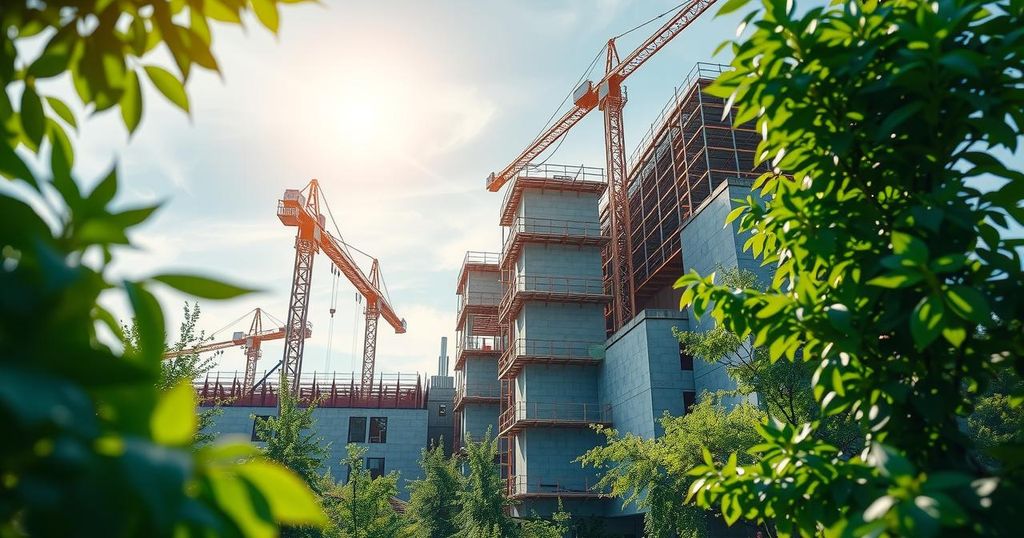Volker Türk, the UN human rights chief, urged for the lifting of Western sanctions on Syria, emphasizing the need for transitional justice as the country rebuilds after the fall of Bashar Assad. He met with new authority leaders, stressing the importance of human rights and social cohesion. The Syrian conflict has caused immense suffering, and reconstruction will necessitate international support.
In a recent visit to Syria, the UN human rights chief, Volker Türk, advocated for lifting Western sanctions imposed on the country following the civil war. With the ousting of Bashar Assad, Türk emphasized the need for transitional justice for the victims, which he believes would restore public trust in state institutions. He stated, “Revenge and vengeance are never the answer,” following the fall of the Assad regime when insurgent groups captured Damascus. Türk met with Ahmad al-Sharaa, the leader of Hayat Tahrir al-Sham, who assured him of a commitment to respect human rights and promote social cohesion and institutional reforms.
The Syrian conflict, which began in 2011, has resulted in nearly half a million fatalities and millions displaced, leading to significant destruction that will require an estimated tens of billions of dollars for reconstruction. Türk remarked, “The people of Syria need every ounce of help they can get to rebuild a country that works for all Syrians,” while stressing the importance of respecting Syria’s territorial integrity. He urged for an end to ongoing hostilities, emphasizing that peace is essential for recovery.
Western nations, particularly European countries and the United States, imposed sanctions on Assad’s government as the conflict erupted. There remain concerns regarding the Islamist ties of the insurgent factions that currently lead the interim government. Türk highlighted the negative impacts of these sanctions on civilians, urging a reconsideration of sectoral sanctions with a view to lifting them. Moreover, the Syrian Interior Ministry announced the detention of Egyptian militant Ahmad al-Mansour, who was associated with anti-government activities, a move likely to allay fears in Arab countries of Syria becoming a base for regional insurgency operations.
The ongoing conflict in Syria, which has lasted over a decade, has resulted in a humanitarian crisis with extensive loss of life and displacement of millions. The civil war began as part of wider protests against authoritarian rule, leading to significant suffering for the civilian population. Since the ousting of Bashar Assad, there have been increasing discussions about the future of governance in Syria and the role of international stakeholders in facilitating recovery and rebuilding efforts. The call for lifting sanctions aligns with views advocating humanitarian considerations amid ongoing recovery efforts.
UN human rights chief Volker Türk’s call for the lifting of sanctions on Syria aligns with the urgent needs for aid and reconstruction as the country seeks to recover from years of civil war. His meetings with new leadership in the country indicate a potential shift towards governance that prioritizes human rights. Nevertheless, the complexities of the sanctions regime and lingering regional tensions underscore the challenges ahead for Syria’s future stability and rebuilding efforts.
Original Source: apnews.com






